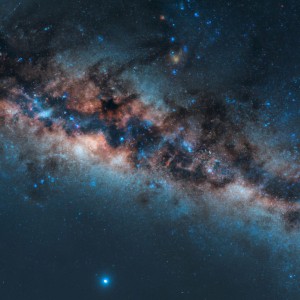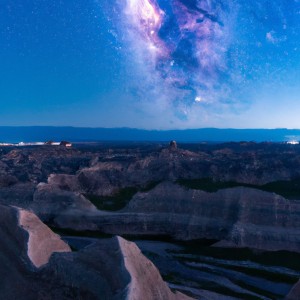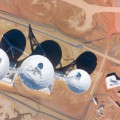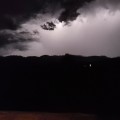How Large is Another Universe?
The concept of multiple universes, also known as a multiverse, has been explored in science fiction for many years, but in recent years, it has become a serious topic of discussion among scientists. One of the most intriguing aspects of the multiverse theory is the idea that there may be other universes out there that are vastly different from our own. But just how large could another universe be?

Firstly, it's important to understand that the size of another universe would depend on a number of factors, including its age, composition, and whether or not it has expanded at the same rate as our own. According to the Big Bang theory, our universe began as a singularity that was only a millionth of a billionth of a billionth of a billionth of a second old. From that tiny point, the universe expanded rapidly, reaching its current size of roughly 93 billion light-years in diameter.
If another universe has also undergone a similar expansion, then it could be a similar size to our own. However, it's also possible that another universe could be much larger or smaller than ours. Some theories suggest that other universes may exist at different scales, with some being much smaller, while others could be infinitely larger.
One of the most interesting proposals in this regard is the concept of a "super-universe", which is a theoretical structure that comprises many individual universes all connected to one another. A super-universe could be infinitely large, and would contain an infinite number of individual universes within it. Each of these universes would be separated from one another by vast distances and different sets of physical laws, making them unique in their own way.
Another theory that has gained traction in recent years is the idea of a "brane multiverse", which proposes that there are multiple parallel universes existing on different "branes" or planes of existence. These universes could be connected to one another in a higher-dimensional space that we cannot observe directly, and each universe would have its own unique properties and characteristics.
In summary, it is difficult to determine exactly how large another universe could be without knowing more about its composition and history. However, the multiverse theory does suggest that other universes could come in a wide range of sizes, including everything from tiny parallel universes to massive super-universes comprised of an infinite number of individual universes. It's an exciting area of research, and as we continue to learn more about the universe and the laws that govern it, we may someday discover that an entirely different universe is closer than we ever imagined.













评论